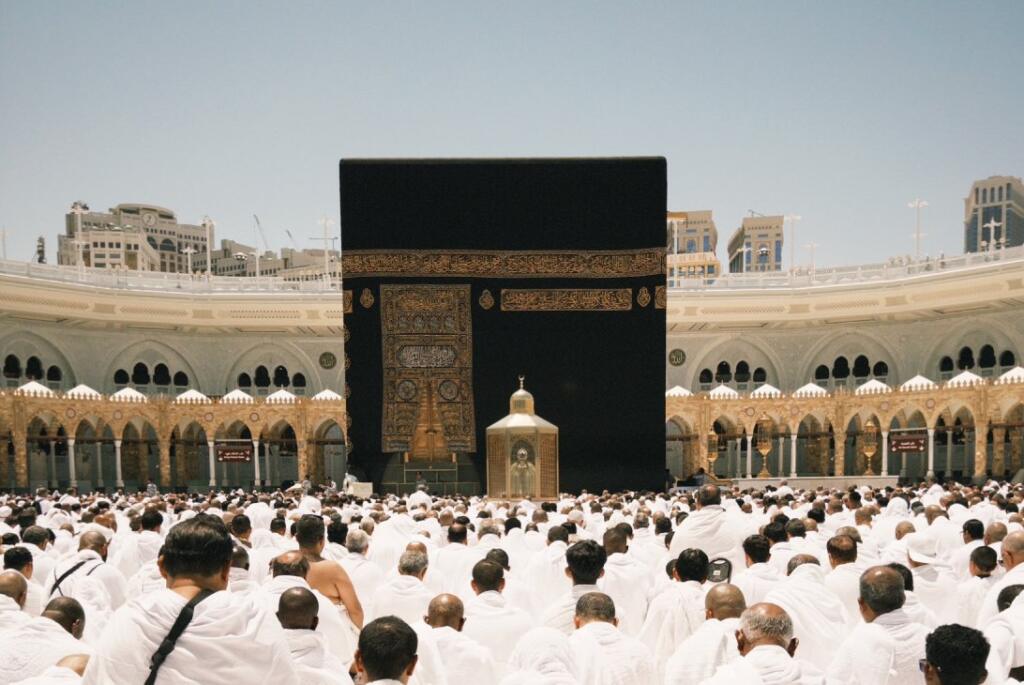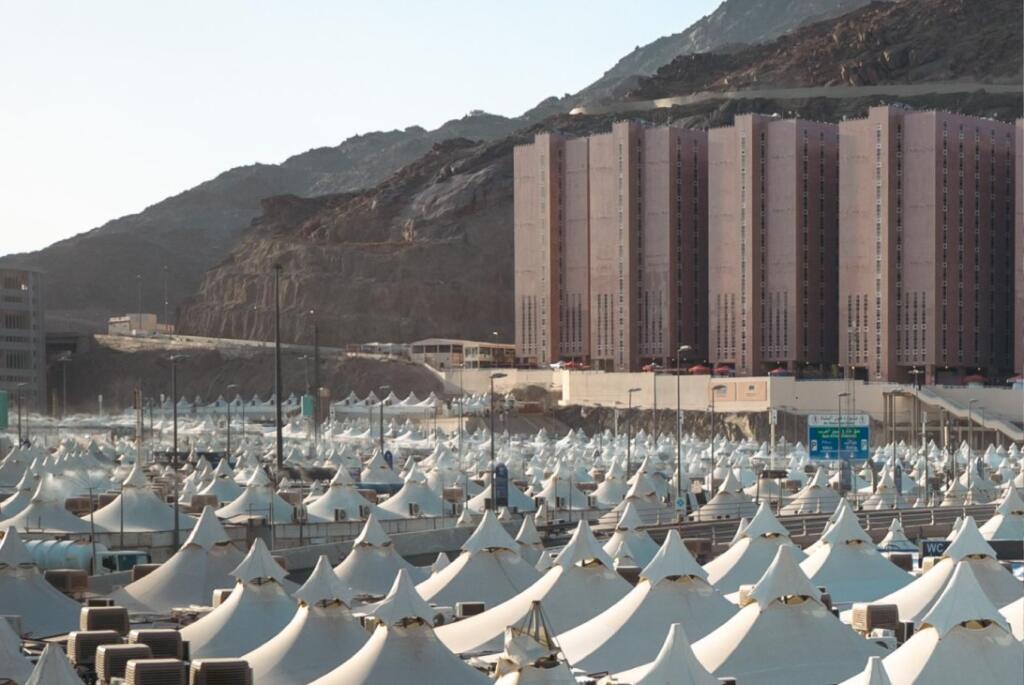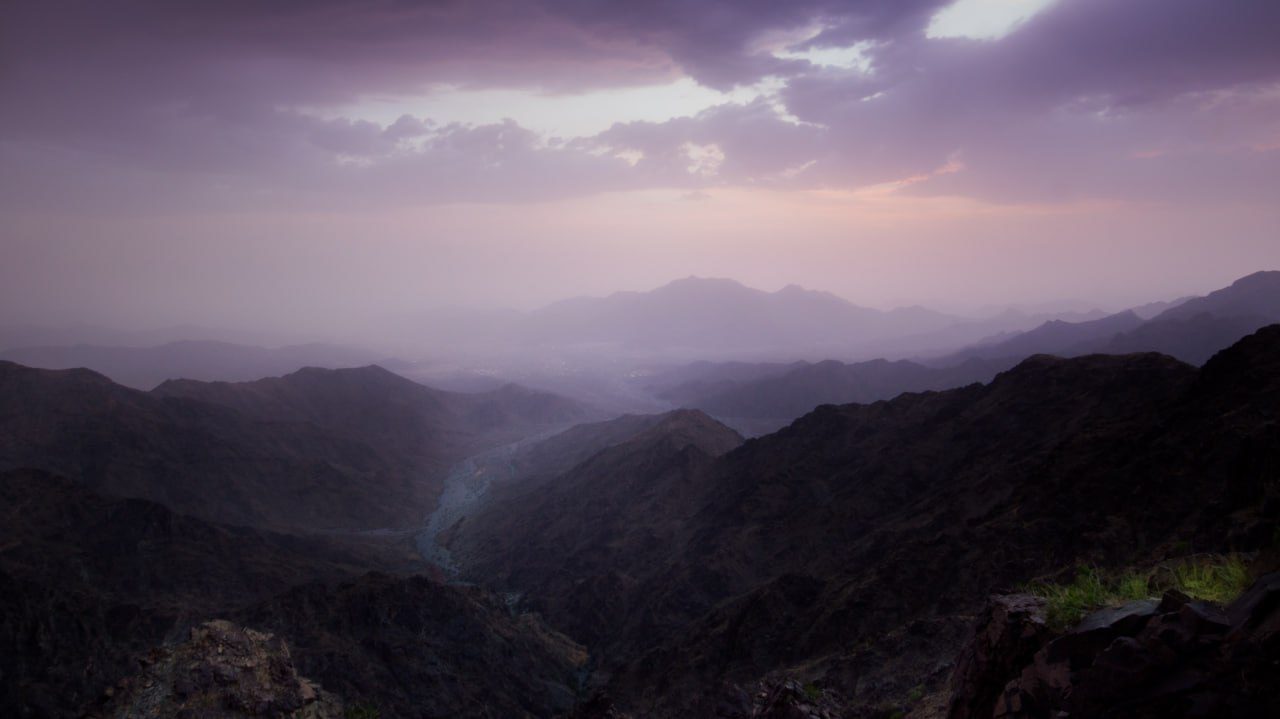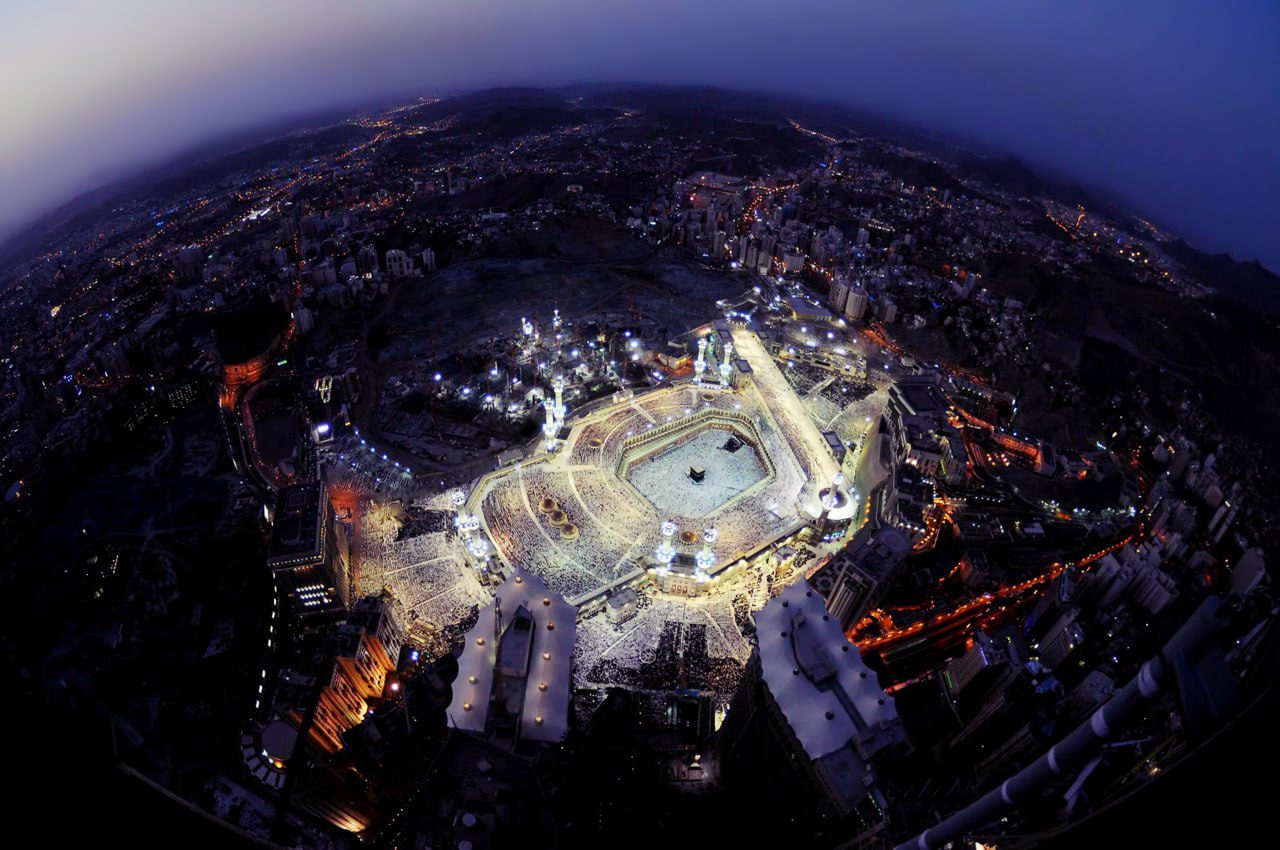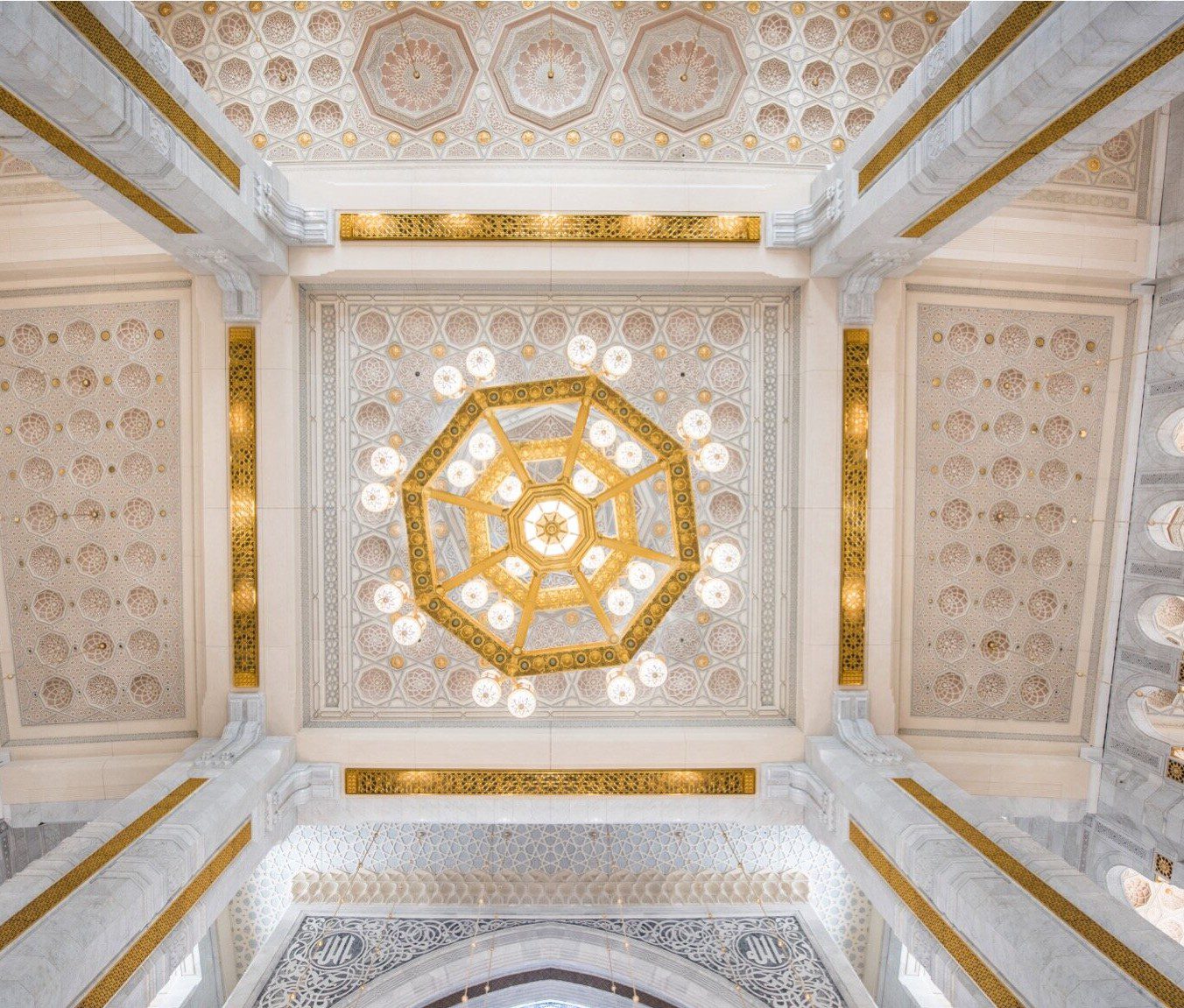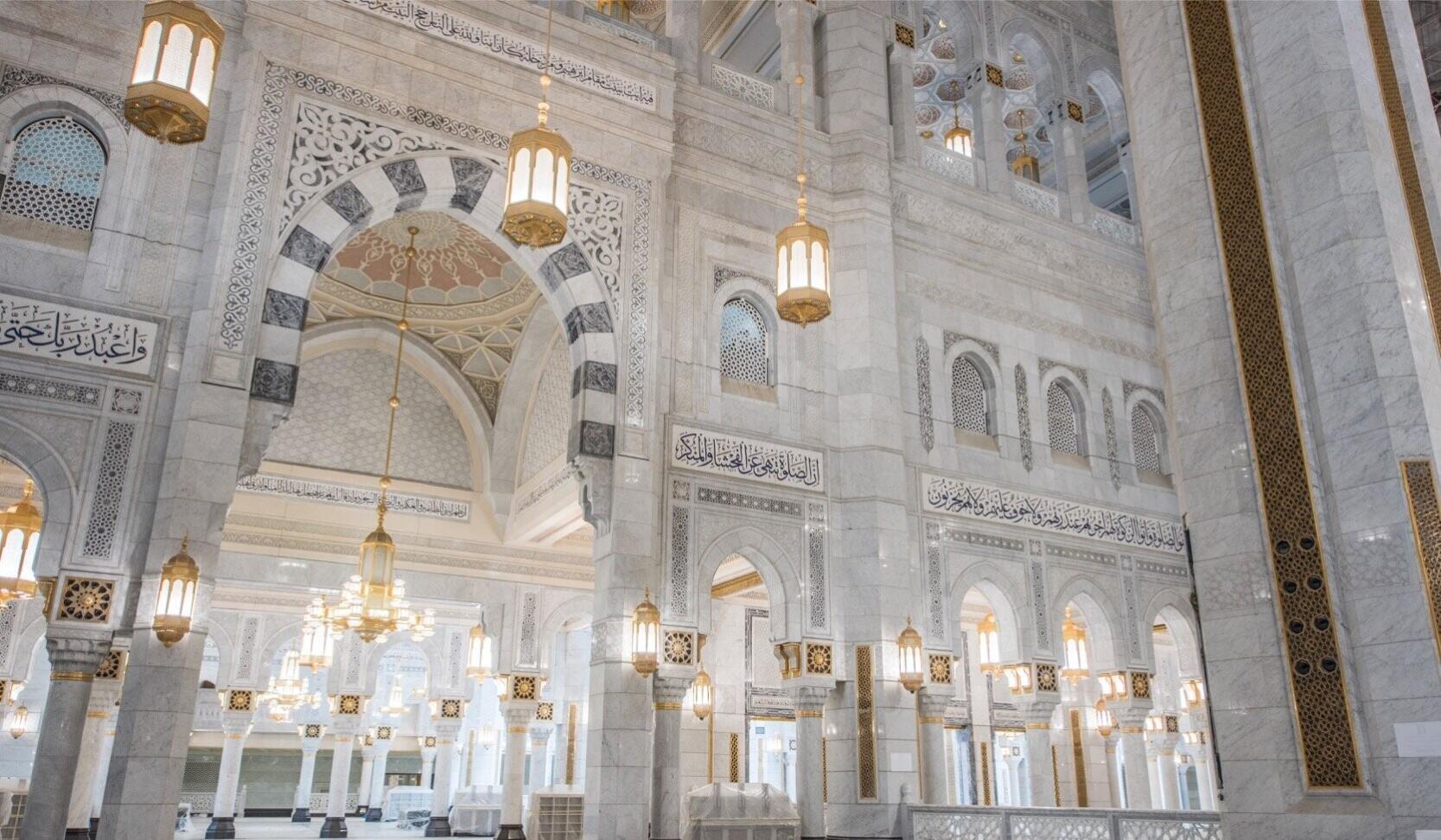Ḥajj is the fifth pillar of Islam and one of the greatest acts of worship. Allah ﷻ says in the Qur’ān:
…وَلِلَّهِ عَلَى ٱلنَّاسِ حِجُّ ٱلْبَيْتِ مَنِ ٱسْتَطَاعَ إِلَيْهِ سَبِيلًا وَمَن كَفَرَ فَإِنَّ ٱللَّهَ غَنِىٌّ عَنِ ٱلْعَـٰلَمِينَ
“…Pilgrimage to the House is an obligation by Allah upon whoever is able among the people. And whoever disbelieves, then surely Allah is not in need of (any of His) creation” (3:97).
The Messenger of Allah ﷺ spoke often about the virtues and the lofty rank of ḥajj in the sight of Allah. Knowing and understanding the virtues of good deeds sparks longing in the heart, awakens īmān, and inspires sincerity. Without that inner motivation, no act of worship can carry its true worth.
The virtues of ḥajj include:
1. Entry into Paradise
The Messenger of Allah ﷺ said, “ʿUmrah to ʿumrah is an expiation for what is between them, and the ḥajj mabrūr has no reward except Paradise.” (Bukhari).
A ḥajj mabrūr (righteous accepted ḥajj) is one that:
- Is free from sin and wrongdoing.
- Leaves the pilgrim transformed, returning better, purified, and reformed.
- Deepens detachment from the worldly life and increases longing for the hereafter.
- Is performed without showing off, seeking fame, obscene speech, or disobedience.
- Consists of the pilgrim feeding others, speaking kindly, and spreading salām.
2. One of the Greatest Acts of Worship
The Messenger of Allah ﷺ was asked, “What is the best deed?” He replied, “Imān in Allah and His Messenger.” It was said, “Then what?” He ﷺ said, “Jihād in the path of Allah.” It was said, “Then what?” He said, “Ḥajj mabrūr (a righteous accepted ḥajj)” (Bukhārī).
Ḥajj is a comprehensive act of devotion that combines all forms of worship, engaging both the heart and body, the outward and the inward.
Abū al-Shaʿthā’ Jābir b. Zayd said, “Ṣalāh tires the body but not the wealth. Zakāh affects the wealth but not the body. Ḥajj exhausts both body and wealth, and that is why it is the best of deeds.”
3. Forgives all Sins
The Messenger of Allah ﷺ said, “Whoever performs ḥajj for the sake of Allah and refrains from intimate relations and sins will return as free of sin as the day his mother gave birth to him” (Bukhārī).
ʿAmr b. al-‘Āṣ (raḍiy Allāhu ʿanhu) said: “When Allah placed Islam in my heart, I came to the Messenger of Allah ﷺ and said, ‘Stretch out your hand so I may pledge allegiance to you.’ He extended his hand, but I pulled mine back. He said, ‘What’s wrong, O ʿAmr?’ I said, ‘I want to make a condition.’ He said, ‘What condition?’ I said, ‘That I am forgiven.’ The Prophet ﷺ said, ‘Don’t you know that Islam wipes out all that came before it, and that hijrah wipes out what came before it, and that ḥajj wipes out what came before it?’” (Muslim).
This is a Divine message sent to you from Allah: If you have fallen short in the past, ḥajj can be your new beginning. Allah, The Most Merciful and Powerful, can cleanse you and help you turn a new chapter in your life.
4. Erases Poverty and Sins
The Messenger of Allah ﷺ said, “Perform ḥajj and ʿumrah regularly. Performing them regularly removes poverty and sins just as the blacksmith’s furnace removes impurities from iron” (Aḥmad).
The Prophet ﷺ specifically mentioned iron because it is one of the hardest and most impure metals. This indicates that no matter how intense one’s poverty or how serious one’s sins, performing ḥajj and ʿumrah regularly can cleanse and remove them, just as fire purifies even the toughest of metals.
5. The Amazing Rewards of Hajj
The Messenger of Allah ﷺ said, “As for your departure from your home intending the Sacred House; for each step your mount takes, Allah writes for you a good deed and erases a bad one.
As for your standing at ʿArafah, Allah descends to the lowest heaven and boasts about you to the angels, saying: ‘These are My servants, they came to Me dishevelled and dusty from every distant path, hoping for My mercy and fearing My punishment, though they have not seen Me. How would it be if they had seen Me?’ If your sins were as numerous as the sand of the desert, or the days of the world, or the drops of rain, Allah would wash them all away.
As for your stoning of the jamarāt, it is stored for you (as reward). As for your shaving of your head, for every hair that falls, you receive a good deed. And when you perform ṭawāf of the House, you exit free of sin, just like the day your mother gave birth to you” (Ṭabarānī).
6. The Pilgrims Are the Guests of Allah
The Messenger of Allah ﷺ said, “The warrior in the path of Allah, the pilgrim, and the person performing ʿumrah are the delegation of Allah. He invited them so they responded to Him; they asked Him, so He gave them” (Nasā’ī).
The pilgrims are the delegation of Allah. A (delegation) refers to distinguished guests who travel to meet a king or ruler for a specific purpose. It is well known that human rulers receive such guests with honour, celebration, and generous hospitality.
Can you then even imagine the honour and generosity shown by the Lord of all creation?
ʿAlī b. al-Muwaffaq (raḥimahullāh) said, “I performed ḥajj sixty times. After that, I once sat in the ḥaṭīm, reflecting on myself and all those pilgrimages, wondering whether they were accepted or rejected. I then fell asleep and had a dream. A voice said to me: ‘Do you invite anyone to your house except those you love?’ I woke up comforted and reassured.”
7. The Reward Is Guaranteed
The Messenger of Allah ﷺ said, “Whoever sets out for ḥajj and dies, the reward of a pilgrim until the Day of Judgement is recorded for him. Whoever sets out for ʿumrah and dies, the reward of one performing ʿumrah until the Day of Judgment is recorded for him. Whoever goes forth as a warrior and dies, the reward of a warrior until the Day of Judgement is recorded for him” (Abū Yaʿlā).
This ḥadīth shows that there is a guarantee that the reward of the pilgrim who passes away continues to flow until the Day of Judgment.
8. Allah Takes Care of the Pilgrim
The Messenger of Allah ﷺ said, “Three are under the protection of Allah: a man who goes out to a masjid of Allah, a man who goes out fighting in the path of Allah, and a man who goes out for ḥajj” (Abū Nuʿaym).
9. The Greater the Effort, the Greater the Reward
The Messenger of Allah ﷺ said to ʿĀ’ishah (raḍiy Allāhu ʿanhā) about her ʿumrah, “Your reward is according to the effort you exert and the money you spend” (al-Targhīb wa al-Tarhīb).
Through this glad tiding, it’s as if the Prophet ﷺ is gently comforting every pilgrim’s heart, reminding them that every moment of fatigue, every hardship endured, and every penny spent is not lost. Rather, the rewards of it by Allah are far more lasting and precious.
Ḥajj is meant to be difficult and test you in different ways. Each time you are tested, remind yourself: the greater the difficulty, the greater the reward.
10. The Best Jihad for Women
ʿĀ’ishah (raḍiy Allāhu ʿanhā) said, “O Messenger of Allah, shouldn’t we go out and perform jihād with you? I don’t see any deed in the Qur’ān better than jihād.” He ﷺ replied, “No. The best and most beautiful form of jihād for you is ḥajj of the House: a ḥajj mabrūr” (Nasā’ī).
Ḥajj mirrors the worship of jihād as both involve enduring hardships, spending money, leaving your home and loved ones, and putting Allah’s pleasure over personal comfort.
Similarly, pilgrims resemble warriors in many ways. They are dressed in a uniform — the iḥrām — and move in organised ranks. They are united in purpose, direction, and rituals. They follow strict rules, where even a careless word can reduce their reward. And they obey every command, just like soldiers on a battlefield.
May Allah al–Karīm, The Most Generous, grant us all a ḥajj mabrūr and bless us with His endless rewards.

